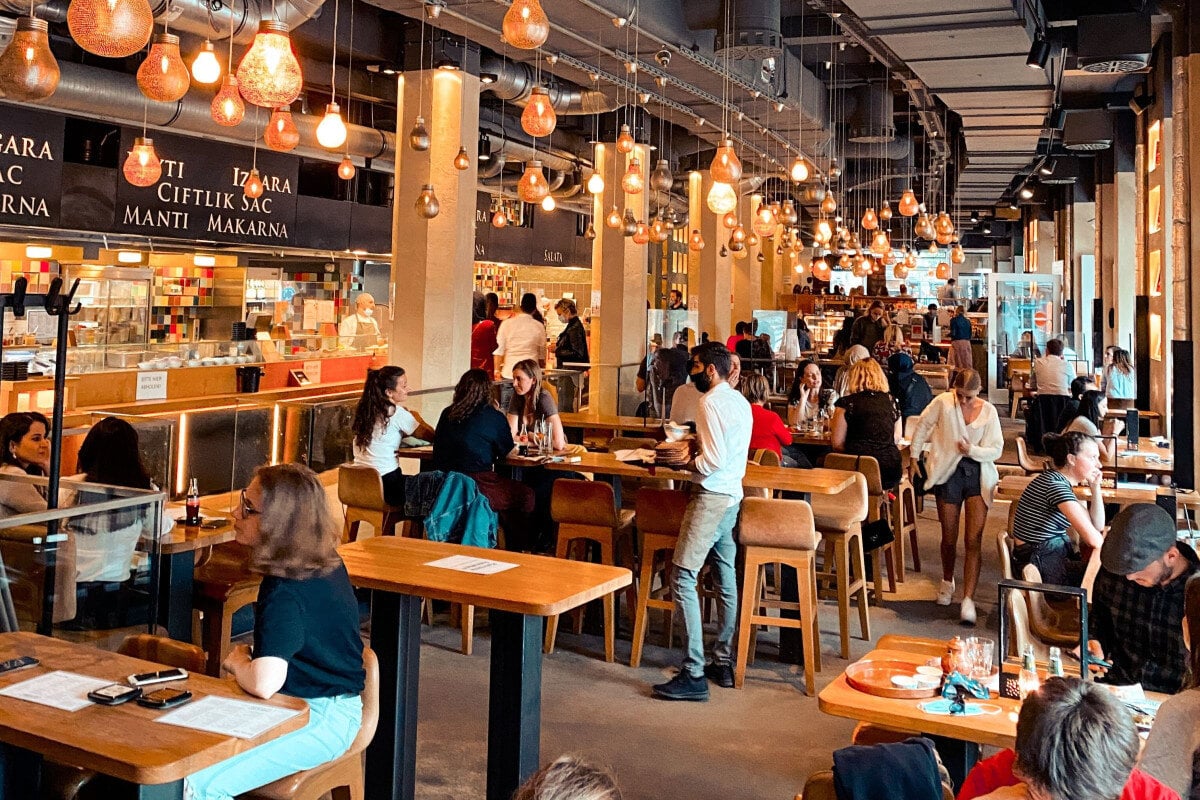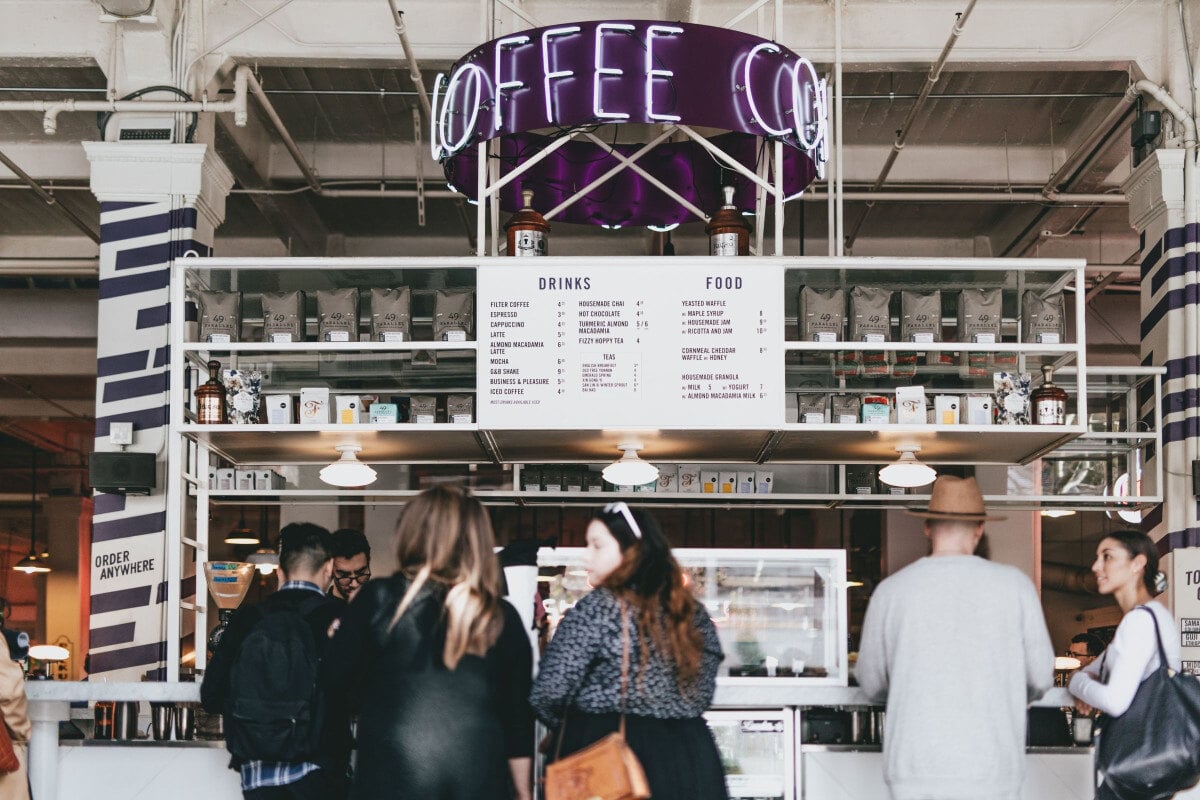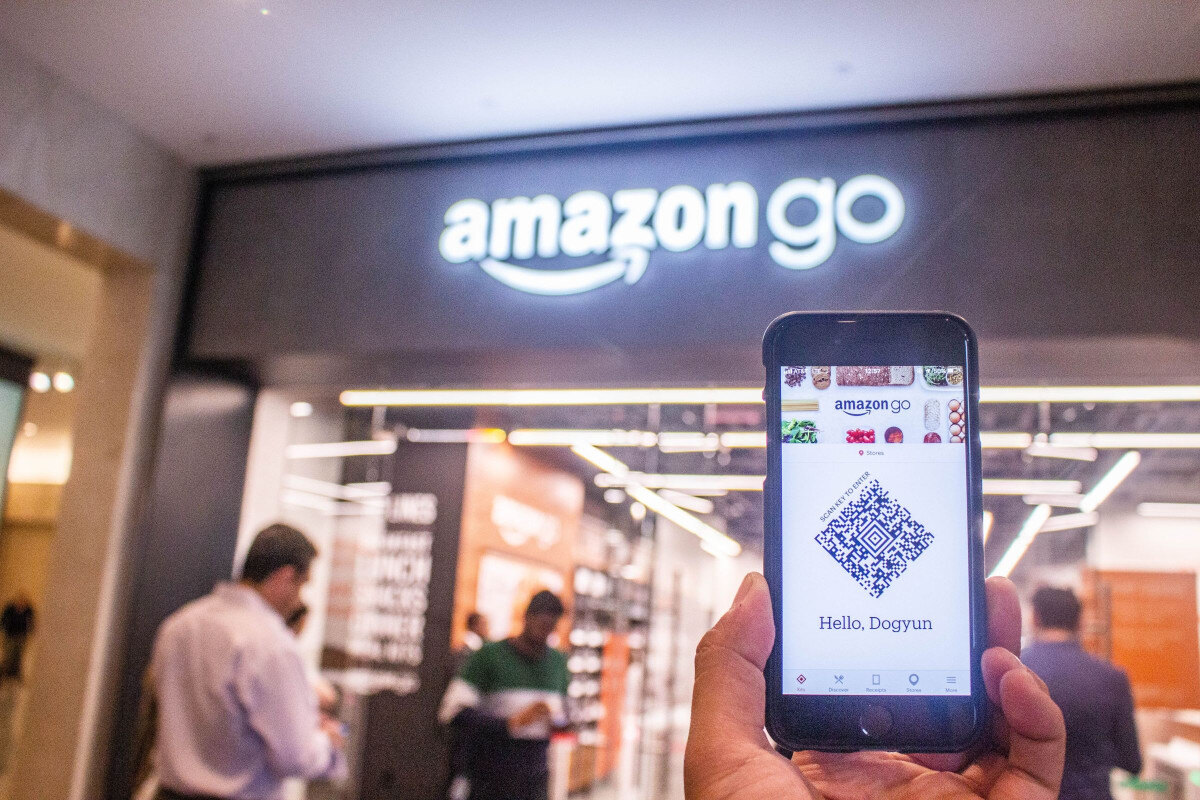Using Customer Future Value for Better Financial Projections
Customer future value (CFV) is how to measure the amount of potential revenue one guest should generate for your business over an identified future...
Platform
Combining online ordering, loyalty, omnichannel messaging, AI insights, and payments in one platform. Paytronix delivers relevant, personal experiences, at scale, that help improve your entire digital marketing funnel by creating amazing frictionless experiences.
A Complete Customer Experience Platform
Online Ordering
Acquire new customers and capture valuable data with industry leading customization features.
Loyalty
Encourage More visits and higher spend with personalized promotions based on individual activity and preferences.
CRM
Build great customer relationships with relevant personal omnichannel campaigns delivered at scale.
Artificial Intelligence
Leverage the most data from the most customer transactions to power 1:1 marketing campaigns and drive revenue.
Payments
Drive brand engagement by providing fast, frictionless guest payments.
Solutions
We use data, customer experience expertise, and technology to solve everyday restaurant and convenience store challenges.
Contactless Experiences
Accommodate your guests' changing preferences by providing safe, efficient service whether dining-in or taking out.
Customer Insights
Collect guest data and analyze behaviors to develop powerful targeted campaigns that produce amazing results.
Marketing Automation
Create and test campaigns across channels and segments to drive loyalty, incremental visits, and additional revenue.
Mobile Experiences
Provide convenient access to your brand, menus and loyalty program to drive retention with a branded or custom app.
Subscriptions
Create a frictionless, fun way to reward your most loyal customers for frequent visits and purchases while normalizing revenues.
Employee Dining
Attract and retain your employees with dollar value or percentage-based incentives and tiered benefits.
Order Experience Builder
Create powerful interactive, and appealing online menus that attract and acquire new customers simply and easily.
Loyalty Programs
High-impact customizable programs that increase spend, visit, and engagement with your brand.
Online Ordering
Maximize first-party digital sales with an exceptional guest experience.
Integrations
Launch your programs with more than 450 existing integrations.
Loyalty Programs
Deliver the same care you do in person with all your digital engagements.
Online Ordering
Drive more first-party orders and make it easy for your crew.
Loyalty Programs
Digital transformations start here - get to know your guests.
Online Ordering
Add a whole new sales channel to grow your business - digital ordering is in your future.
Integrations
We work with your environment - check it out.
Company
We are here to help clients build their businesses by delivering amazing experiences for their guests.
Meet The Team
Our exceptional customer engagement innovations are delivered by a team of extraordinary people.
News/Press
A collection of press and media about our innovations, customers, and people.
Events
A schedule of upcoming tradeshows, conferences, and events that we will participate in.
Careers
Support
Paytronix Login
Order & Delivery Login
Resources
Learn how to create great customer experiences with our free eBooks, webinars, articles, case studies, and customer interviews.
See Our Product In Action
E-Books
Learn more about topics important to the restaurant and c-store customer experience.
Webinars
Watch brief videos for tips and strategies to connect with your customers.
Case Studies
Learn how brands have used the Paytronix platform to increase revenue and engage with guests.
Reports
See how your brand stacks up against industry benchmarks, analysis, and research.
Blog
Catch up with our team of in-house experts for quick articles to help your business.
Are you missing these 5 strategies to transform guest engagement in 2025?
10 min read
Sep 04, 2024

As a busy restaurant owner, you’re likely always looking for creative ways to increase sales. Yet it’s important that you balance a proactive sales strategy with maintaining day-to-day operations at your restaurant. This is a lot to juggle.
Incremental growth is a good middle ground. These are the small, manageable changes that lead to significant revenue growth overtime. When you take this slow and steady approach to increasing restaurant sales, you can accurately identify which techniques have the greatest impact on your revenue.
This guide consolidates the most important revenue-boosting strategies. Based on your restaurant’s current performance and most pressing needs, you can prioritize these strategies however you see fit.
Your restaurant’s ambiance, menu structure, ease of ordering, service, and more all create a holistic and memorable dining experience for your customers. Below are three tips for how you can optimize it to help drive sales.
1. Enhancing Ambiance and Service
The ambiance of your restaurant should align with its brand. Everything from the lighting and music to the color painted on the walls contributes to the aesthetic. Consider these five tips for how to create a welcoming dining atmosphere:
In addition to the physical characteristics of your restaurant, delivering stellar service can increase customer satisfaction. Customers want to feel valued. Being personable, attentive, and kind to customers goes a long way toward generating repeat business.
High-quality service means considering the small details. For example, servers should remember a customer’s food allergies, restrictions, or preferences. Likewise, periodic check-ins to ask how customers are enjoying themselves lends itself to a quality dining experience.
2. Menu Engineering
There is a science to how you construct your menu. The average customer’s eyes visit the middle of the menu first, the top right second, and the top left third. Menu engineers refer to this setup the “Golden Triangle.” The takeaway: aim to place menu items with the highest profit margins in these locations.
Here are four additional tips when constructing your menu to increase restaurant sales:
As you build your menu, look back at past sales records to see which dishes, drinks, and desserts are most popular. When coupled with the tips listed above, this data can guide how you organize the menu.
3. Special Promotions and Limited-Time Offers
Special promotions are among the best ways to keep customers engaged with your restaurant. Deals create a sense of urgency—if customers want to take advantage of the current deals, they need to visit at a particular date and/or time.
You may have exclusive menu items only available for a short time. You may introduce seasonal specials or limited deals during certain hours of the day when foot traffic is slower. These special promotions and limited-time offers (LTOs) prompt customers to visit your restaurant when they might not have otherwise.
Technology can be a huge asset when finding creative ways to connect with customers and boost restaurant sales. Luckily, there are three simple ways you can uplevel your use of technology to increase engagement.
1. Implementing Online Ordering Systems
About 40% of customers prefer placing orders for delivery and takeout using the restaurant’s app or website. Third-party ordering systems usually mark-up menu items, making it harder for your restaurant to profit from and retain customers that order this way. Additionally, most customers want to pay the restaurant directly.
That said, it’s important to have an user-friendly online ordering system. These are four key characteristics to remember as you get started with an online ordering system:
With modern technology at our fingertips, online ordering systems are a must. They’re a great way to create a seamless experience for customers. In fact, 25% of customers spend more on delivery and takeout orders than they do when dining in the restaurant. The simpler and more user-friendly the purchasing process, the more likely you are to increase sales.
2. Utilizing Point of Sale (POS) Upselling
When a customer places an order online, they are using a point-of-sale (POS) system. It’s a platform where customers can add menu items to their cart, place their order, and track it.
POS upselling entails showing customers additional menu items they may want to add to their order. Usually, these upsell opportunities are related to the items currently in the customer’s cart. POS upselling should be tested during at least one business cycle in your restaurant (usually one week) to determine whether it’s an effective strategy for encouraging customers to add more to their order.
Say a customer orders a burger and fries. They can scroll down the page to see a list of commonly added items. These menu items could be sides, appetizers, or even adding extra cheese to their burger. It’s all to prompt customers to make order changes resulting in larger tickets.
3. Digital Reservation and Table Management
Digital tools streamline the entire process of making reservations and managing tables. Not only does it allow you to better optimize customer seating, but it can also reduce wait times and increase turnover. As a result, you end the business day having serviced more customers and made more sales.
Additionally, customer-driven reservation systems allow them to book a table anytime of day. Instead of needing to wait until your restaurant’s business hours to call and reserve a table, they can do it on their own. The easier it is for customers to make a reservation, the more likely they are to do it.
Technology can also work behind the scenes to streamline your back-of-house operations. Managing tables during peak hours can feel overwhelming when done by hand. You’re relying on manual input to track availability and estimate wait times.
With the help of digital tools, the process becomes far more efficient, and you cut down on the risk of human error. Smooth operations mean you can better serve customers to ensure their satisfaction.
Local SEO is a marketing strategy that helps businesses increase visibility in local search inquiries. It’s an effective way to reach more customers in your immediate community.
These are the four most important components of your local SEO campaign:
In addition to local SEO, social media can be a huge asset to boosting customer awareness of your business. It’s estimated that 72% of customers discover new restaurants through social media. Here, you can amplify your restaurant’s brand, engage with customers, promote special events, showcase new menu items, and post general updates in one place.
Finally, it’s worthwhile to leverage targeted advertising campaigns to reach your intended audience. Doing so in tandem with your local SEO marketing efforts allows you to effectively reach local demographics and drive more foot traffic to your restaurant.
Consider advertising on platforms like Google Ads, Facebook Ads, Yelp, Instagram, and anywhere else your audience lives online. Whichever one you choose, make sure you set it up in such a way that it collects and displays data in accurate, actionable ways. You can use that information to guide future targeted advertising campaigns.
If you’re an active restaurant in your community, locals are more likely to be familiar with your name, brand, and menu. It also allows you to give back to your community. Discover three ways to drive more community momentum below:
1. Hosting Community Events
Hosting community events can be one of the best ways to gain local visibility. Customers see your logo, brand, and name at these events. Additionally, they get to sample your food. It’s a great chance to take advantage of some word-of-mouth marketing.
Here are five ideas for community events that you could host:
Getting involved in community events generates opportunities to boost revenue. Private cooking classes or wine tastings ask customers to pay for their seat. So, both your restaurant and the partnering business gain more public awareness and generate revenue.
2. Developing Partnerships with Local Businesses
Partnerships with local businesses allow you to host collaborative events and promote each other. As a restaurant owner collaborating with a fellow local owner, you might get creative in how you host events or even open a new establishment.
Take a look at this example from Portland, Oregon. The head chef of local restaurant Hat Yai teamed up with the owner of Matt’s BBQ to create the much beloved Eem—a Thai BBQ fusion restaurant. Eem has grown into a local favorite and gained national attention.
All told, partnerships with local businesses—whether in the form of events or entirely new restaurants—are an effective way to boost restaurant sales.
3. Participation in Local Food Scenes
Getting involved with local food scenes helps spread awareness of your brand. Maybe you’re a local bakery that maintains a stall at the local farmer’s market every summer. Or you may be a pizza mastermind who participates in a local pizza competition.
By putting your brand out in the community, you allow locals to get to know you. Share your restaurant’s story and the love that goes into crafting each menu item. In doing so, you invite local customers to connect with your business and get to know the people running the show behind the scenes.
Consider these three ideas for how improving restaurant sales by getting involved in your local food scenes:
Pro tip: If your community doesn’t have local food festivals or competitions, consider starting one yourself! Pair up with two or three local businesses to host an event that increases brand awareness and generates sales for all of you.
1. Creating a Loyalty Program
Once you’ve caught the attention of new customers, you need to keep them engaged. Creating a loyalty program is one of the best ways for restaurants to do it.
The core mission of loyalty programs is to encourage repeat visits by offering compelling rewards for specific actions. With each visit, customers spend money, thus boosting your sales. Most restaurants make more money catering to repeat customers than trying to attract new ones.
Loyalty programs generate compelling rewards that keep customers returning to your restaurant. Maybe they earn points with each purchase that can be used toward future purchases or they receive discounts on favorite menu items. A gift card program can also help you drive sales.
A successful loyalty program creates a feeling of exclusivity and belonging. As a result, customers feel more connected to your brand.
Pro tip: Consider implementing a tiered loyalty program. In this model, customers earn a reward for reaching each milestone in the program. It gives them something to aspire toward. Businesses with tiered loyalty programs report 1.8X higher ROI than those that opt for an alternate setup.
2. Employee Training and Incentives
For your loyalty program to reach peak effectiveness, your in-house team needs to understand the ins and outs of how it works. If a customer has questions, your employees can answer in detail. You could also create opportunities for employees to offer customers lesser known tips to make the most of your rewards program.
Consider offering incentives to employees who get customers to sign up for the rewards program. For example, an employee encourages a customer to register for your loyalty membership and the employee receives a percentage bonus based on the membership fee. Overall, aim to make it a core practice of your restaurant for employees to communicate the value of your rewards offerings.
3. Collecting and Acting on Customer Feedback
Customer feedback is one of the most valuable assets you have in understanding how individuals experience your restaurant. It’s best to be as proactive as possible with collecting customer feedback. Create a regular cadence for customer check-ins. When you get feedback often, you can continue to iterate on your business and meet customer needs.
Here are six channels through which to collect customer feedback to drive more restaurant sales:
Seek feedback on everything from your menu design to reward programs. If you have in-depth data available, you could ask specific demographics for feedback on certain aspects of your business.
Once you have the feedback, the most important part is acting on it. Here are five tips for implementing the most valuable data:
Remember, customer feedback also tells you what you’re doing well. If customers love a particular part of your restaurant, maybe you find a way to amplify it in your marketing strategy.
There are many moving parts as you build a strategy to improve restaurant sales. As a busy owner, you need to be able to prioritize the techniques that will be the most impactful for your restaurant. Here’s a breakdown of the top eight factors to keep in mind:
The first step is to assess your current standing in each of these categories. It’s the baseline while you work on how to increase restaurant sales. Leverage customer feedback to point you toward the areas of your business that need the most improvement.
As you improve restaurant operations, the best thing you can do is stay proactive. It’s important that you’re dynamic and responsive in a competitive market. The better you can meet customer needs and increase their satisfaction, the more you’ll stay ahead of competitors.
From customer insights to loyalty programs, Paytronix is the all-in-one guest engagement platform for your restaurant. Schedule a demo today.

Customer future value (CFV) is how to measure the amount of potential revenue one guest should generate for your business over an identified future...

Customer loyalty refers to a customer’s consistent preference for a particular brand, service, or product. These are the guests who keep coming back...

Efficient inventory management may not sound like the most glamorous thing in the world, but it’s the backbone of any successful convenience store...